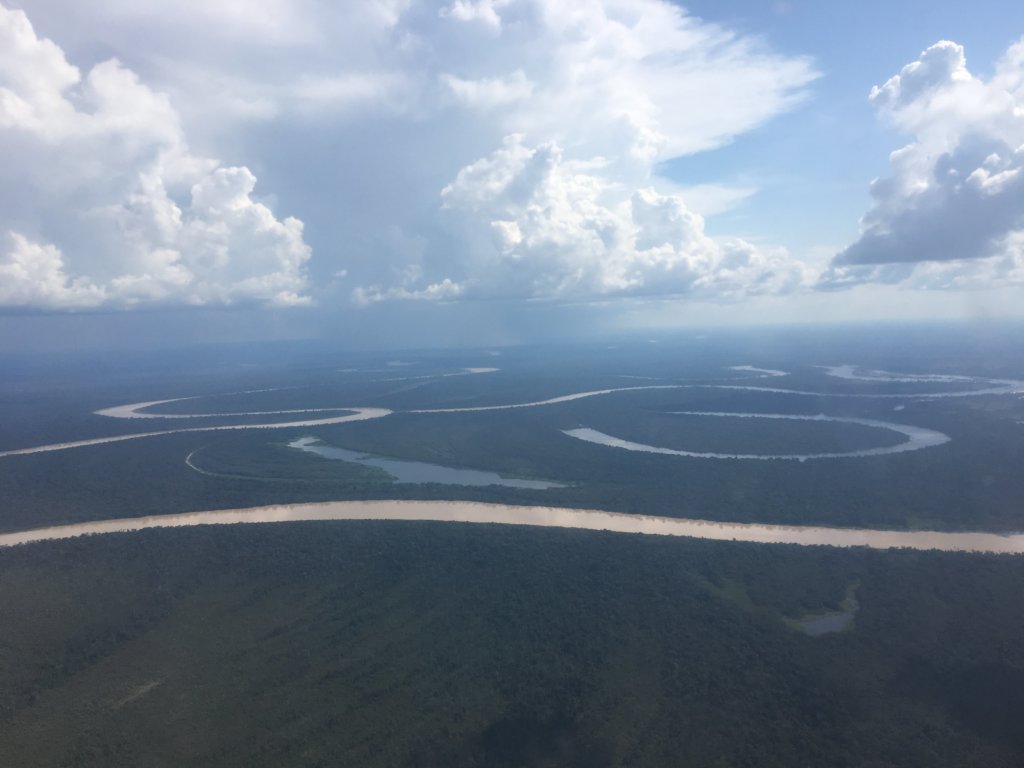By Luiza Coimbra | Communications
"Things are going to move forward now. The women are joining together with their strong desire to realize their dreams. This is an opportunity for the women to build ways to make their own incomes. We want to see ASMAMJ grow, just like ASPROC has grown.", said a member of the Fiscal Council of the Association of Agroextractive Women of the Middle Juruá - ASMAMJ.
In 2017, SITAWI initiated the Médio Juruá Territory Program (TMJ), an international cooperation program funded by the United States Agency for International Development (USAID) and in partnership with Coca-Cola Brazil and Natura.
With its support from USAID, the Program relies on close collaboration with the members of the Middle Juruá Territory Forum. This group includes corporations (Natura and Coca-Cola), nonprofits and local companies (Association of Rural Producers of Carauari–ASPROC, Association of Agroextractivists Residents of the Sustainable Development Reserve Uacari–AMARU, Association of Extractive Residents of the Community of São Raimundo–AMECSARA, Association of Agroextractive Women of the Médio Juruá–ASMAMJ, Amazonas Sustainable Foundation (FAS), Mixed Cooperative for the Sustainable Development of the Medium Juruá Reserve (CODAEMJ, Açaí Tupã, among others) and government environmental protection agencies (Chico Mendes Institute for Biodiversity Conservation–ICMBio and the Department for Climate Change and Management of Conservation Units, Amazonas State–DEMUC), as well as SITAWI itself, which coordinates the project and fulfills the role of the Forum’s Executive Secretariat.
The objective of the three-year program is to conserve biodiversity by implementing a Territorial Development Plan for the region, involving a broad stakeholder base to increase the scale and impact of conservation and development initiatives focusing on social, environmental and economic aspects.
"We developed the whole project based on the demands of the populations. The project has the potential to be transformative for the region to empower communities and serve as an example of how sustainable value chains can conserve biodiversity and drive a region’s social development and should be a model for other regions in Amazonia.”, said SITAWI’s Manager of Territorial Programs.
USAID's investment will be allocated for education, sanitation, energy and information, access to potable water, and studies on the region's sustainable production chains such as açaí, andiroba, and murumuru. Activities also include sustainable management of fish stocks, turtle conservation, supporting a family-run school, environmental education, agroforestry systems and piloting waste management, energy and communication systems in the region.
Project reports on GlobalGiving are posted directly to globalgiving.org by Project Leaders as they are completed, generally every 3-4 months. To protect the integrity of these documents, GlobalGiving does not alter them; therefore you may find some language or formatting issues.
If you donate to this project or have donated to this project, you can receive an email when this project posts a report. You can also subscribe for reports without donating.
Support this important cause by creating a personalized fundraising page.
Start a Fundraiser